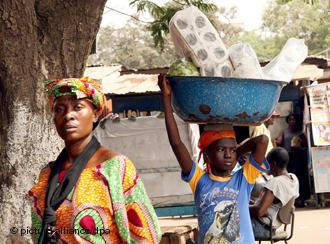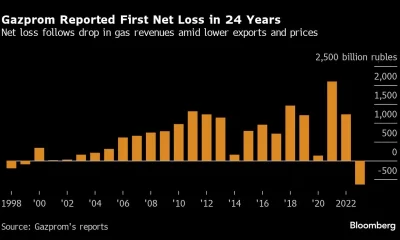Global Issues
Using children as domestic slaves -By Debbie Ariyo

This week, a Nigerian-British couple were convicted in the United Kingdom for trafficking and exploiting a man they brought into the country when he was 14 years old, holding him captive for the next 24 years as their slave. The man spent most of his life at the whim and caprices of the couple and their families, attending to their needs and desires and being psychologically and physically abused – at the expense of his own life and well-being.
Surprisingly, this is not a new or recent phenomenon. When I started the charity AFRUCA here in London in 2001, the trafficking of children for domestic slavery and sexual exploitation were two key issues that informed my action. In the course of AFRUCA’s work over the past 14 or so years, we have seen many cases as the one above and have supported over 300 children and young people trafficked into the UK to be exploited and abused mainly by people from their own countries and in many cases – members of their own families.
The cases we have dealt with at AFRUCA are enough to make anyone with any shred of humanity in them break down in tears. I remember in 2006, two young men walked into our office. Having seen me on TV, they were able to track down our office. They recounted their experiences of being brought to the UK by their mother after their father died because his family were fighting over his property. Not wanting the children to be harmed by all the in-fighting, she wanted her family in England to help look after them until things died down. This marked the beginning of a lifetime of suffering endured by the two young people. They never saw their mother again and spent the next 10 years in slave-like existence. Passed on from relative to relative, they were used to claim state benefits but they were never looked after. One of the young men told me he never had a winter coat in all the time he lived with relatives – winter was always very difficult for him. A relative who owned a restaurant practically turned the two boys into cooks, waiters and cleaners. They would go to the market to buy foodstuffs, they would cook all the food and serve the mainly clientele of Nigerian taxi drivers who would go there to buy their take-away food while on night shift. Shockingly, in all the years, no one ever thought to ask the two boys what they were doing serving food in a restaurant in the middle of the night. If they did anything wrong, they would be beaten with a wooden spoon. One of the young men talked about how he was beaten by his “aunty”, the restaurant owner, and he fell down the stairs and collapsed…she still continued to whack him with the wooden spoon.
In 2010, a Nigerian pastor was jailed for 11 years here in London for trafficking children and exploiting and abusing them. One of the young people she abused who we also supported at AFRUCA recounted a story in which she forgot to bring a piece of frozen fish out of the freezer. The woman was so incensed she used the fish to beat her until she was unconscious.
The trafficking of children for domestic slavery in the UK is an epidemic most notable amongst the Nigerian Diaspora. We have the highest number of children trafficked into this country for both domestic slavery and sexual exploitation. We have the second largest number of victims of trafficking in the UK –more than any other country in the world. What is the reason for this anomaly?
The evil culture of using children as domestic helps in Nigeria is a contributory factor. Many people feel it is right to import this practice into the UK since it is normal in Nigeria. Many people do not see anything wrong with this practice and are unlikely to report cases to the UK authorities. Sadly, many children have also been failed by the authorities because of their own belief that using children as domestic servants is a cultural practice which should be left alone in the interest of race relations. This “cultural relativism” means that many children who run away from their traffickers and who report to the police are returned to their abusers – only for them to experience a worst form of abuse for daring to run away.
The outcomes for many of these young people are always dire. Most people in Nigeria will be shocked to find out there are young people here in this country who cannot read or write – yet they have been in the country for five, eight, 10 years. This is because their trafficker has refused to send them to school, preferring to use and abuse them as slaves locked up in the house doing manual labour. Ironically, for many of these young people, the key reason they were brought into the country was to have a better life and a good education.
The Nigerian government needs to address this terrible issue of domestic servitude or slavery, if we are to protect many children from exploitation, abuse and harm. It is neither morally nor legally right to have hundreds of thousands of children in culturally accepted and acceptable slavery in this 21st century – and for no one to see anything wrong with it. Almost all households in the south-western part of Nigeria have children used as servants – class and religion are no barrier. These poor children experience the worst forms of abuses imaginable. There are often stories in the Nigerian media about a child being beaten to death or having hot water poured on them or being harmed in other ways – because they are a domestic servant. This evil just has to stop.
The onus is on the Nigerian government to declare a zero-tolerance of child abuse and the use of children as domestic slaves. I call on the government to completely ban this evil practice and jail anyone who breaches this law. The current law that allows parents to give up their children if they are over 12 years old does not help. There can be no excuses for using children as slaves in this 21st century.
Ms Ariyo OBE is CEO of AFRUCA, a UK-based charity promoting the rights and welfare of children. www.afruca.org




















